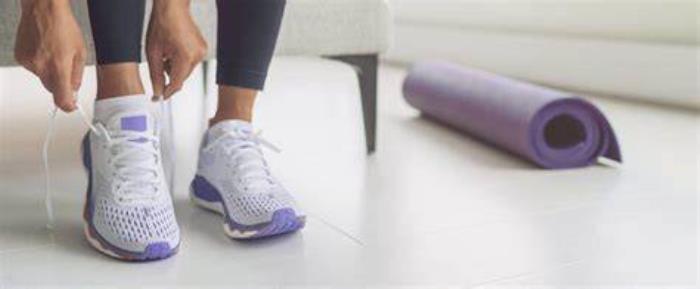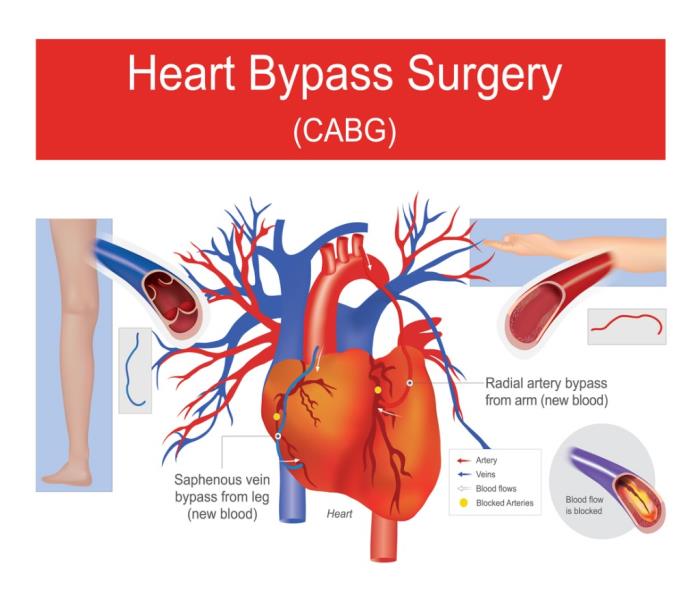Life after heart bypass surgery marks a new beginning for patients, offering the opportunity to enhance overall health and well-being. While the surgery itself is a significant milestone in managing coronary artery disease, the recovery journey that follows is equally important. Embracing this new chapter involves understanding what to expect during the recovery process, actively participating in follow-up care, and making necessary lifestyle changes that can improve heart health and quality of life.
Immediate Post-Surgery Care: What to Expect
In the immediate aftermath of heart bypass surgery, patients can expect to spend several days in the hospital, typically starting in the intensive care unit (ICU) for close monitoring. During this time, healthcare providers will assess vital signs, manage pain, and monitor for any signs of complications. Patients may experience fatigue, discomfort, and emotional fluctuations as their bodies begin to heal. It is crucial to communicate openly with the healthcare team about any concerns or symptoms to ensure appropriate care and support.
The Importance of Follow-Up Appointments
Follow-up appointments play a vital role in the recovery process after heart bypass surgery. These visits allow healthcare providers to monitor the healing process, adjust medications, and assess overall heart function. Regular follow-ups also provide an opportunity for patients to discuss any concerns, including changes in symptoms or lifestyle adjustments. Adhering to scheduled appointments is essential for ensuring that patients are on track for a successful recovery and for identifying any potential issues early on.

Physical Recovery: Understanding Your Body’s Healing Process
Physical recovery after heart bypass surgery is a gradual process that requires patience and attention to the body's needs. It typically takes several weeks for the initial healing of incisions and the return of energy levels. Understanding the stages of recovery can help patients set realistic expectations for their progress. It is common to experience fluctuations in energy, along with physical limitations during the early recovery phase, but engaging in gentle activities as tolerated can promote healing and improve overall well-being.
Pain Management and Discomfort: Tips for Relief
Managing pain and discomfort is a crucial aspect of recovery after heart bypass surgery. Patients should follow the prescribed pain management plan provided by their healthcare team, which may include medications and non-pharmacological approaches. Strategies such as using pillows for support while sitting or lying down, practicing deep breathing exercises, and gradually increasing activity levels can help alleviate discomfort. Communicating any persistent or severe pain to healthcare providers is important for adjusting treatment plans as needed.
Lifestyle Changes: Diet and Nutrition for Heart Health
Making healthy lifestyle changes is essential for promoting heart health and preventing complications after heart bypass surgery. A heart-healthy diet rich in fruits, vegetables, whole grains, lean proteins, and healthy fats can help manage weight, lower cholesterol levels, and improve overall cardiovascular health. Patients should work closely with healthcare providers or dietitians to create a personalized nutrition plan that meets their specific needs, including guidelines for portion sizes and food choices that support long-term heart health.
Resuming Physical Activity: Guidelines for Safe Exercise
Resuming physical activity after heart bypass surgery is vital for recovery, but it must be approached with caution. Patients should follow their healthcare provider's recommendations for when and how to gradually reintroduce exercise. Initially, light activities such as walking are encouraged to improve circulation and build stamina. Over time, patients can progress to more structured exercise routines, including aerobic and strength-training activities, with the goal of enhancing cardiovascular fitness while ensuring safety throughout the recovery process.
Cardiac Rehabilitation: A Key Component of Recovery
Cardiac rehabilitation is an essential part of the recovery process following heart bypass surgery. This structured program typically includes supervised exercise, nutritional counseling, and education about heart health. Engaging in cardiac rehab can significantly enhance physical recovery, improve cardiovascular fitness, and reduce the risk of future heart problems. By participating in a comprehensive rehabilitation program, patients are better equipped to make lifestyle changes that promote long-term heart health.
Emotional Well-Being: Coping with Changes After Surgery
Emotional well-being is a crucial aspect of recovery after heart bypass surgery. Patients may experience a range of emotions, from anxiety and depression to relief and hope. It’s important for patients to acknowledge these feelings and seek support when needed. Counseling, support groups, or talking with loved ones can help individuals cope with the emotional changes that come with recovery. Taking care of mental health is just as vital as managing physical health during this transition.
Managing Medications: What You Need to Know
After heart bypass surgery, managing medications becomes essential for recovery and long-term health. Patients will typically be prescribed a combination of medications to manage pain, prevent blood clots, and control blood pressure and cholesterol levels. Understanding how to take these medications correctly, potential side effects, and the importance of adherence to the prescribed regimen is critical. Regular communication with healthcare providers can ensure that any medication-related issues are addressed promptly.
Monitoring Heart Health: Recognizing Warning Signs
Monitoring heart health after surgery is vital for detecting potential complications early. Patients should be educated about the warning signs that may indicate a problem, such as chest pain, shortness of breath, or swelling in the legs. Keeping track of these symptoms and reporting them to healthcare professionals can lead to timely interventions and better outcomes. Regular follow-up appointments are also essential for ongoing assessment of heart health.
Returning to Work: When and How to Transition
Returning to work after heart bypass surgery requires careful consideration and planning. The timeline for resuming work varies depending on the individual’s job demands, recovery progress, and overall health. It’s generally recommended that patients consult with their healthcare team to establish an appropriate timeline for returning to work. Gradually easing back into work, starting with reduced hours or modified duties, can help ensure a smooth transition.
Relationships and Support Systems: Navigating Changes
The journey after heart bypass surgery can impact personal relationships and support systems. Patients may find that they need to communicate openly with family and friends about their needs and experiences during recovery. Building a strong support network is crucial, as it can provide emotional comfort and practical assistance. Engaging in conversations with loved ones about fears and expectations can strengthen these relationships and enhance recovery.
Long-Term Health Monitoring: Keeping Your Heart Healthy
Long-term health monitoring is key to maintaining heart health after bypass surgery. Patients should have regular check-ups with their healthcare providers to monitor heart function, manage risk factors, and assess overall well-being. Lifestyle changes, such as adopting a heart-healthy diet, engaging in regular physical activity, and quitting smoking, should be emphasized to prevent future heart issues. Continuous monitoring and proactive health management can significantly improve long-term outcomes.
 <="" p="">
<="" p="">
Understanding Potential Complications After Surgery
Understanding the potential complications that can arise after heart bypass surgery is important for informed decision-making. Patients should be aware of risks such as infection, bleeding, or graft failure. Education about these complications can help patients recognize warning signs and seek prompt medical attention if needed. Being informed empowers patients to take an active role in their recovery and make decisions that promote their health.
Celebrating Milestones: Recognizing Recovery Progress
Recognizing and celebrating milestones during recovery can enhance motivation and promote a positive mindset. Whether it’s completing a certain number of weeks in cardiac rehab, returning to daily activities, or achieving a fitness goal, acknowledging these accomplishments can boost morale. Sharing progress with family and friends can create a sense of community and support, reinforcing the positive changes made throughout the recovery journey.
Incorporating Relaxation and Stress Management Techniques
Incorporating relaxation and stress management techniques into daily life can greatly benefit recovery after heart bypass surgery. Practices such as mindfulness, deep breathing exercises, and yoga can help manage stress levels and promote emotional well-being. Finding activities that foster relaxation and calmness can improve overall quality of life and aid in the healing process.
Engaging in Community and Support Groups
Engaging in community and support groups can provide valuable resources and social connections for patients recovering from heart bypass surgery. These groups offer a platform for sharing experiences, discussing challenges, and receiving encouragement from others who understand the journey. Participation in community activities can also foster a sense of belonging and purpose, contributing to emotional health and well-being.

The Impact of Heart Bypass on Daily Activities
Heart bypass surgery can significantly impact daily activities and routines. Patients may need to adjust their schedules to accommodate rest and recovery, and they may also need to modify certain activities to align with their new health goals. Understanding these changes and developing a realistic plan for integrating daily activities into the recovery process can promote a smoother transition to normal life.
Latest Innovations in Heart Bypass Surgery Techniques
Stay informed about the latest advancements in heart bypass surgery techniques. This section highlights new technologies and methodologies that improve surgical precision, reduce recovery time, and enhance overall patient outcomes, reflecting the evolving landscape of cardiac care.
Typical Recovery Timeline After Heart Bypass Surgery
Understand the typical recovery timeline following heart bypass surgery. This section breaks down the stages of recovery, including hospital stay, at-home care, and gradual return to normal activities, offering patients a clear roadmap for their recovery journey.
Conclusion: Embracing a Healthier Future After Surgery
Embracing a healthier future after heart bypass surgery involves commitment, support, and active participation in one’s health journey. By focusing on physical recovery, emotional well-being, and lifestyle changes, patients can enhance their quality of life and reduce the risk of future heart problems. With the right resources and support systems in place, individuals can navigate the challenges of recovery and emerge stronger and healthier.
Best Heart Bypass Surgery in India
The Best Heart Bypass Surgery in India is a critical procedure that reroutes blood flow around blocked arteries, improving blood supply to the heart and enhancing patient health and quality of life.
Best Heart Bypass Surgery Hospitals in India
The Best Heart Bypass Surgery Hospitals in India feature advanced medical facilities and expert cardiology teams, providing comprehensive care from diagnosis to post-surgery recovery for optimal outcomes.
Heart Bypass Surgery Cost in India
The Heart Bypass Surgery Cost in India is competitively priced, ensuring patients receive high-quality treatment with transparent pricing and affordable care options.
Best Heart Bypass Surgeons in India
The Best Heart Bypass Surgeons in India are skilled and experienced professionals, committed to delivering personalized care and achieving the best possible surgical outcomes for heart patients.
FAQ
What should I expect in the first few weeks after heart bypass surgery?
In the first few weeks, patients can expect to experience some pain and discomfort, fatigue, and limitations in physical activity. It’s important to follow healthcare providers’ instructions for recovery.
How long does recovery take after heart bypass?
Recovery can vary widely among individuals, but most patients can expect a gradual return to normal activities within six to twelve weeks, depending on their overall health and the specifics of their surgery.
What lifestyle changes are necessary after surgery?
Key lifestyle changes include adopting a heart-healthy diet, engaging in regular exercise, quitting smoking, and managing stress. Medication adherence is also crucial for long-term health.
How can I manage pain and discomfort at home?
Patients can manage pain and discomfort with prescribed medications, gentle physical activity, and relaxation techniques. Following post-operative care instructions is essential for minimizing discomfort.
When can I return to my normal activities after heart bypass surgery?
The timeline for returning to normal activities varies, but most patients can resume light activities within a few weeks and return to work or more strenuous activities after a few months, based on their recovery progress and healthcare provider’s recommendations.
Explore the Best Cardiologists and Cardiac Hospitals in India
When it comes to heart health, choosing the right specialist and hospital is crucial. We�ve compiled a list of top cardiologists and cardiac hospitals across India to help you find the best care available.
Top Cardiologists and Cardiac Surgeons in Major Cities
Discover the leading heart specialists in India�s major cities:
Conclusion
Your heart deserves the best care. Explore the links above to learn more about the top cardiologists and cardiac hospitals in India.
Related Resources
At ArogyaJivan, we strive to provide you with the most accurate and up-to-date information to help you make informed decisions about your healthcare. Whether you are searching for the Best Doctors in India or the Top 5 Doctors in India, our resources are tailored to guide you through your medical journey. Additionally, our comprehensive guides on the Best Hospitals in India and the Top 5 Hospitals in India will assist you in choosing the right healthcare facility for your needs. Explore these resources to ensure you receive the best possible care.